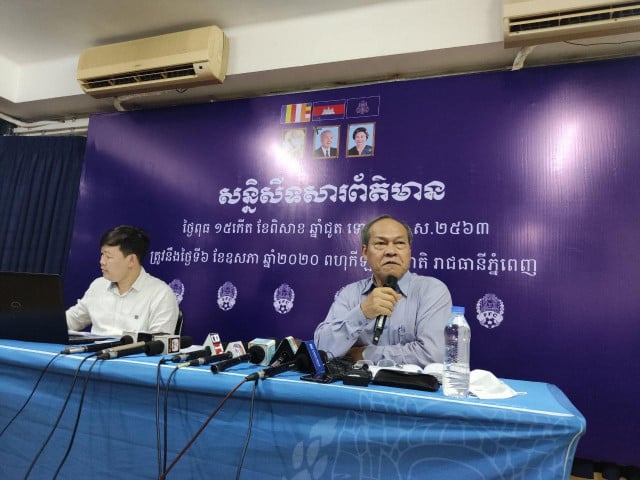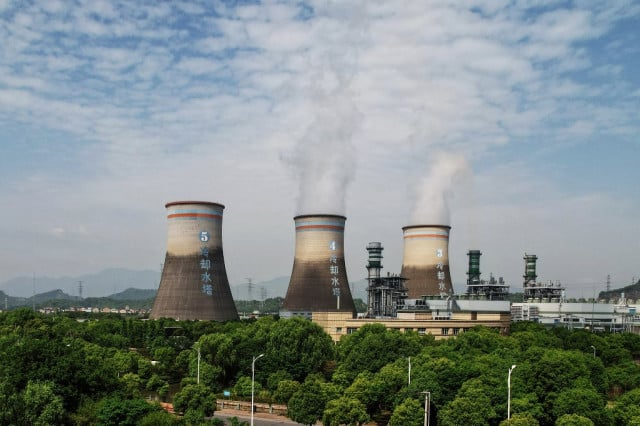ASEAN and Australia: Why Their Relationship Matters to Each Other?

- By Him Raksmey
- March 6, 2024 9:50 AM
Australia and the Association of Southeast Asian Nations (ASEAN) established diplomatic ties 50 years ago, and their relationship has been fruitful and productive since then. However, the region is currently facing various persistent challenges, including the ongoing crisis in Myanmar, unsettled issues over the South China Sea, the war in Ukraine, and great power rivalry.
The ASEAN-Australia Special Summit, which is scheduled for 4-6 March, presents a crucial opportunity for both parties to strengthen their Comprehensive Strategic Partnership (CSP) and deepen their relationship in the ever-changing geopolitical landscape of the Indo-Pacific region. The summit of course has wide-ranging implications on how they intend to work together to achieve their collective goal of a more stable and dynamic region.
On 4-6 March 2024, PM Hun Manet attends a Special Summit in Melbourne to commemorate the 50th anniversary of ASEAN-Australia relations. He joins with ASEAN leaders to discuss with Australian PM Anthony Albanese the past and current ASEAN-Australia partnership, and chart future directions to deepen relations between the two sides under the ASEAN-Australia enhanced partnership. He also will have a separate bilateral meeting with the PM of Australia to tighten further the two sides’ relations.
Having frequent foreign trips in a short span of less than six months since assuming office symbolized the importance that PM Manet attaches to a proactive foreign policy to enhance relations with friendly countries to support Cambodia’s positive developments. As such his visit to Australia highlights Cambodia’s preoccupation with enhancing bonds with Australia in such vital areas as economic development, security cooperation, educational advancement, and environmental sustainability. With such proactive engagement, Cambodia and Australia relations are expected to further improve and contribute viably to a new dimension of a more dynamic partnership within the larger context of ASEAN-Australia.
ASEAN matters to Australia
ASEAN is important to Australia primarily based on strategic reasons. Owing to geography and regional design, engaging ASEAN provides Australia with the impetus to actively connect with the wider Indo-Pacific. ASEAN regional architectures such as ASEAN Summit Plus Dialogue Partner (ASEAN + 1), ASEAN Regional Forum (ARF), and East Asia Forum (EAS) whereby critical issues, especially security concerns are discussed, keep Australia well versed in regional security dynamics and fluxes. Engagements with ASEAN also give Australia’s voice in working with regional partners in a multilateral way in addressing international and regional flashpoints that concern to national security of Canberra such as the intensified great power competition, the South China Sea, the Myanmar Crisis, and the War in Ukraine. Furthermore, being close in terms of geographical proximity, tensions and conflicts in the ASEAN region have direct ramifications for Australia’s security interests.
Economic engagement is another major aspect that Australia cannot overlook ASEAN. Being projected to be the fourth largest global economy by 2040, ASEAN represents a golden opportunity for Australia to deepen economic ties such as trading and investment that promote mutual benefits between the two sides. The economic interests of the productive ASEAN-Australia relations are obvious. In 2022, Australia’s two-way trade volume with ASEAN countries was about $178 billion, whereas the accumulative investment between the two sides was nearly $290 billion. Australia commits to enhancing economic engagements with ASEAN by unveiling its Southeast Asia Economic Strategy to 2040, laying out multi-faceted approaches to promote more trade and investments between the two sides in the next 20 years.
Australia matters to ASEAN
Likewise, Australia has been an active supporter of ASEAN. Canberra extended support to the regional bloc even during its early nascent years. In 1974, merely 7 years after ASEAN was established, Australia became the first dialogue partner to ASEAN, representing the first step that began the productive journey of 50 years of official relations between the two sides. Given the depth and breadth of ASEAN-Australia ties, the relations were elevated to Strategic Partnership in 2014. 7 years later, in October 2021, given the potential of cooperation, ASEAN and Australia historically decided to accord their relations to Comprehensive Strategic Partnership (CSP), the highest in ASEAN’s diplomatic hierarchy. So far, only four other countries had such high relations with ASEAN including China (2021), the US (2022), India (2022), and Japan (2023). South Korea is expected to be accorded with CSP soon.
Under the elevated CSP, Australia has ramped up cooperation with ASEAN through various important Australia for ASEAN (Aus4ASEAN) initiatives. For example, within Aus4ASEAN projects, Australia has supported ASEAN in addressing complex regional challenges and supporting the implementation of the ASEAN Outlook on the Indo-Pacific (AOIP); provided practical assistance; and supported initiatives focused on ASEAN's transition to a green economy, strengthening ASEAN's digital economy and advancing regional economic integration.
More importantly, being a treaty ally to the US, Australia stands strategically as an important partner for ASEAN in helping the regional bloc in navigating complex geopolitical issues, particularly the intensified rivalry between the US and China. Engaging with Australia helps ASEAN sense a frank pulse of what the US intends to do with China’s actions in the Indo-Pacific. Although ASEAN and Australia might disagree fundamentally on how to deal with China and the ongoing intensified competition between the US and China, having a partner of choice with Australia is important for ASEAN in this challenging time.
ASEAN-Australia Partnership towards a more stable and dynamic region
Against this backdrop, the ASEAN-Australia Special Summit will inject new vigor into relations. The Melbourne Declaration and the ASEAN-Australia Leaders’ Statement are expected to be adopted at the end of the special summit. These two documents are hoped to be fundamental directions for both sides to chart courses towards the next level of their Comprehensive Strategic Partnership (CSP) to further deepen their relationship in the everchanging geopolitical landscape in the Indo-Pacific region.
ASEAN and Australia, with mutual importance to one another, must make sure that what is put in the Melbourne Declaration and the ASEAN-Australia Leaders’ Statement can be implemented substantially and boldly to take CSP between the two sides closer to reality. Whatever is agreed upon during the Melbourne Summit, both ASEAN and Australia should emphasize endeavors to enhance the partnership, especially in fostering a more stable and dynamic region.
Both sides should make more efforts to consider each other’s strategic objectives and concerns with Southeast Asia and the wider Indo-Pacific, such as the question of upholding rules-based international order such as AUKUS and Quad, deepening economic partnership, and accelerating efforts to combat climate change.
Him Raksmey is the Executive Director of the Cambodian Center for Regional Studies.















